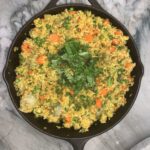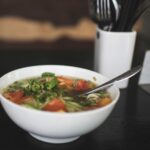
7 Tips For Sustainable Weight Loss
Most weight-loss strategies are focused on external factors—it’s all about the weight, and the food. Counting calories, adding points, measuring food and even deny food cravings has become the norm. This limited view punishes the body. In reality, excess weight is the body’s way of showing that it’s out of balance. Learning how to listen to the body instead of discounting it offers the greatest guidance of all.
From the Traditional Chinese medicine (TCM) perspective, excess weight is a symptom of a greater health problem. It’s the end result of a series of internal events in the body that usually begin with a Qi (internal energy) deficiency and a Qi imbalance. TCM understands that if the root cause of excess weight is not addressed, weight loss will never be permanent. This fundamental concept is supported by statistics that show that 95 percent of dieters ultimately regain a portion or all of the weight they have lost.
Herein lies the secret to sustainable weight loss. In order to enjoy good health which includes balanced weight, you must have sufficient Qi for the body to maintain daily functioning. This Qi is the body’s precious fuel. It nourishes and enables the body to digest food, process emotions, maintain daily activities and prevent health imbalances.
Very often health problems like headaches, PMS, and emotional difficulties such as frustration and depression, precede a weight gain. These are all signals that the body is having functional difficulties. Frequently the relationship between the Spleen and Liver organ systems—both key to proper digestion—becomes imbalanced. TCM believes that a balanced body does not have weight problems. So when attempting to lose weight, it’s important to partner with the body, build energy and recognize the role your emotions and daily activities play in the use of your energy.
Here is a list of tips that will help you build a partnership with the body. These are based on The Dragon’s Way® Weight Loss and Stress Management program.
- Eat mostly fresh foods that are in season
- Do not eat raw vegetables
- Eat plenty of soups in the winter
- Listen to the body and eat the fresh foods you are craving
- Eat until you are 70-80 percent full
- Find a quality qigong practice to build your energy and release stress
- Recognize there is no such thing as a diet, rather a smart way to live life
In subsequent blogs we will talk more about how food cravings are actually signals from the body requesting energetic support. We welcome your thoughts and questions on this subject.









